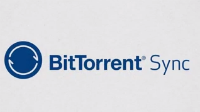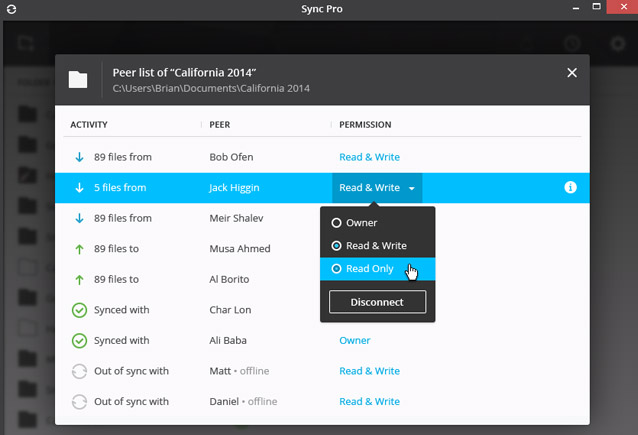BitTorrent Preps Sync Pro to Take on the Cloud
jeudi 20 novembre 2014 à 17:11 Sharing files across multiple devices used to be laborious and time-consuming affair but with the advent of services such as Dropbox the practice has become a breeze.
Sharing files across multiple devices used to be laborious and time-consuming affair but with the advent of services such as Dropbox the practice has become a breeze.
However, while many users remain unconcerned that third-party companies offering ‘cloud storage’ have control of their files, the revelations of Edward Snowden have undoubtedly increased fear of government snooping. With their new product ‘Sync’ in alpha, this data security loophole was pounced upon last year by BitTorrent Inc.
Released in early 2013, BitTorrent Sync is a tool that allows users to securely sync folders across multiple devices using the BitTorrent protocol. In terms of functionality it can be compared to any number of cloud-based services but with one key exception – Sync does not store data in the cloud but does so on users’ devices instead.
The software has now reached version 1.4 and the take-up has been impressive. During August, BitTorrent Inc. confirmed that there had been 10 million user installs transferring over 80 Petabytes of data between them.
Now the company is preparing to debut Sync 2.0 with greater functionality and flexibility while maintaining the privacy of its users. For the first time it will be made available in two editions, ‘free’ and ‘pro’. So what’s the difference?
“Sync 2.0 free will be an improvement from 1.4 and there won’t be any limits on performance or size of individual folders,” BitTorrent Inc.’s Christian Averill informs TorrentFreak.
“Pro users simply get premium functionality, catered specifically to individuals with large data needs and business workgroups.”
Sync 2.0 Free Edition
● Feature improvements, to enhance sharing and syncing folders
● Updated UI across platforms, new tablet apps on Android/iOS
● General performance improvements and bug fixes
● 30-day trial period for Sync Pro
● No restrictions on performance or individual folder sizes.
Sync 2.0 Pro Edition
● Access to very large folders (TBs): allows for on-demand access to individual files
● Control over folder permissions and ownership (see image below)
● Automatic synchronization across devices: all your devices are tied via a common identity; moves the relationship from device-to-device to person-to-person
● Priority technical support

BitTorrent Inc. believes that Sync 2.0 trumps services like Dropbox, Google Drive and OneDrive on a number of fronts. Sync 2.0 places no file-size restrictions on users versus a 1TB limit for rivals. Files are also synced more quickly, up to 16X, since Sync does not rely on uploads to the cloud.
Finally, in addition to enhanced security Sync 2.0 aims to offer better value for money too. The ‘free’ edition is just that and the ‘pro’ version costs $39.99. Competitors Dropbox, Google Drive, and Microsoft OneDrive charge upwards of $83.99 for comparable services.
No firm release data has been announced for Sync 2.0 but those interested in becoming an early adopter can do so here.
Source: TorrentFreak, for the latest info on copyright, file-sharing and anonymous VPN services.




